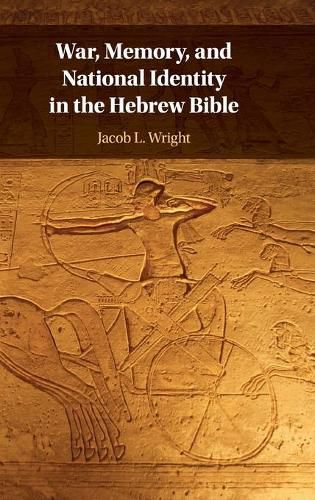Readings Newsletter
Become a Readings Member to make your shopping experience even easier.
Sign in or sign up for free!
You’re not far away from qualifying for FREE standard shipping within Australia
You’ve qualified for FREE standard shipping within Australia
The cart is loading…






The Hebrew Bible is permeated with depictions of military conflicts that have profoundly shaped the way many think about war. Why does war occupy so much space in the Bible? In this book, Jacob Wright offers a fresh and fascinating response to this question: War pervades the Bible not because ancient Israel was governed by religious factors (such as ‘holy war’) or because this people, along with its neighbors in the ancient Near East, was especially bellicose. The reason is rather that the Bible is fundamentally a project of constructing a new national identity for Israel, one that can both transcend deep divisions within the population and withstand military conquest by imperial armies. Drawing on the intriguing interdisciplinary research on war commemoration, Wright shows how biblical authors, like the architects of national identities from more recent times, constructed a new and influential notion of peoplehood in direct relation to memories of war, both real and imagined. This book is also available as Open Access on Cambridge Core.
$9.00 standard shipping within Australia
FREE standard shipping within Australia for orders over $100.00
Express & International shipping calculated at checkout
The Hebrew Bible is permeated with depictions of military conflicts that have profoundly shaped the way many think about war. Why does war occupy so much space in the Bible? In this book, Jacob Wright offers a fresh and fascinating response to this question: War pervades the Bible not because ancient Israel was governed by religious factors (such as ‘holy war’) or because this people, along with its neighbors in the ancient Near East, was especially bellicose. The reason is rather that the Bible is fundamentally a project of constructing a new national identity for Israel, one that can both transcend deep divisions within the population and withstand military conquest by imperial armies. Drawing on the intriguing interdisciplinary research on war commemoration, Wright shows how biblical authors, like the architects of national identities from more recent times, constructed a new and influential notion of peoplehood in direct relation to memories of war, both real and imagined. This book is also available as Open Access on Cambridge Core.